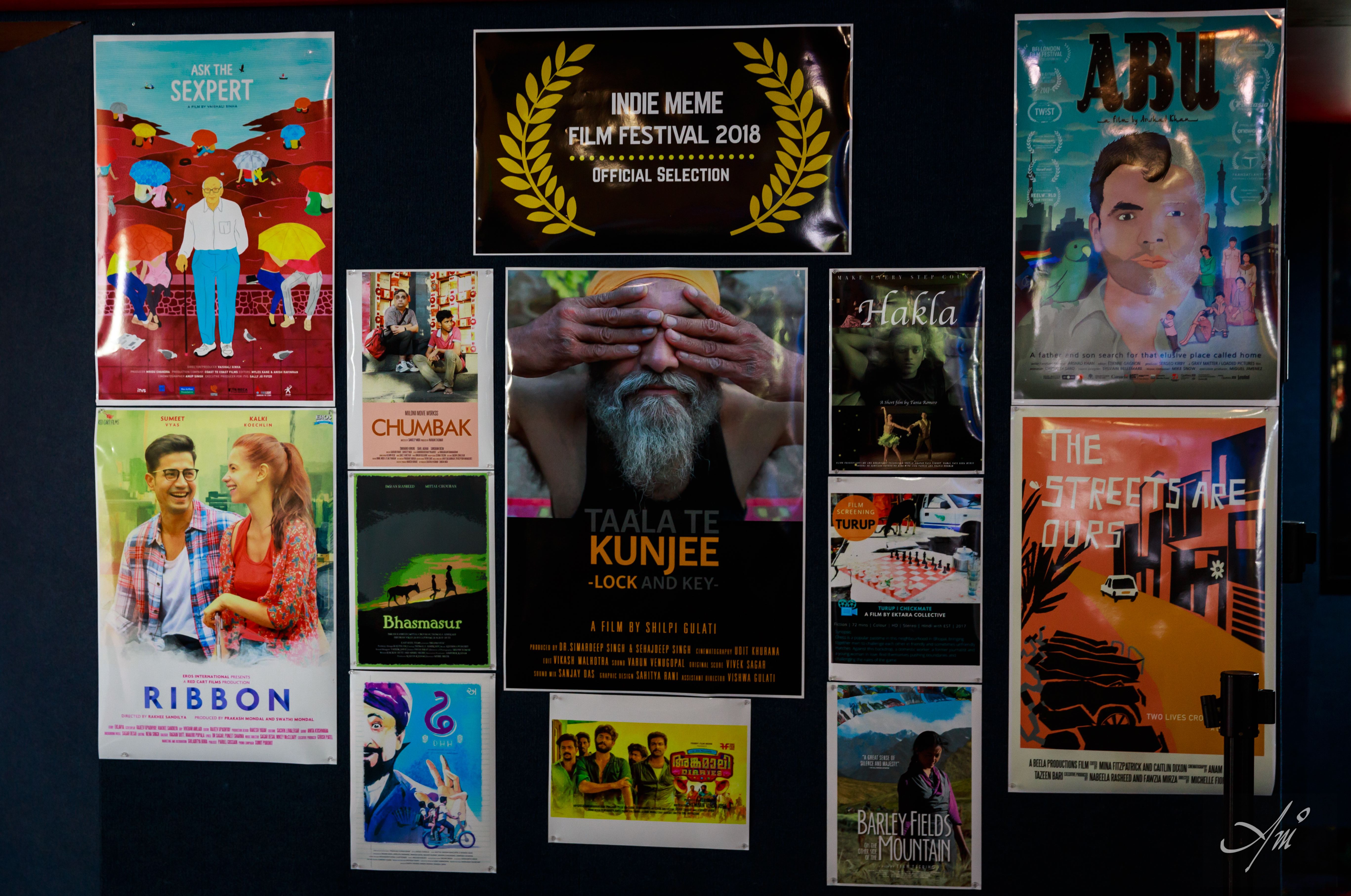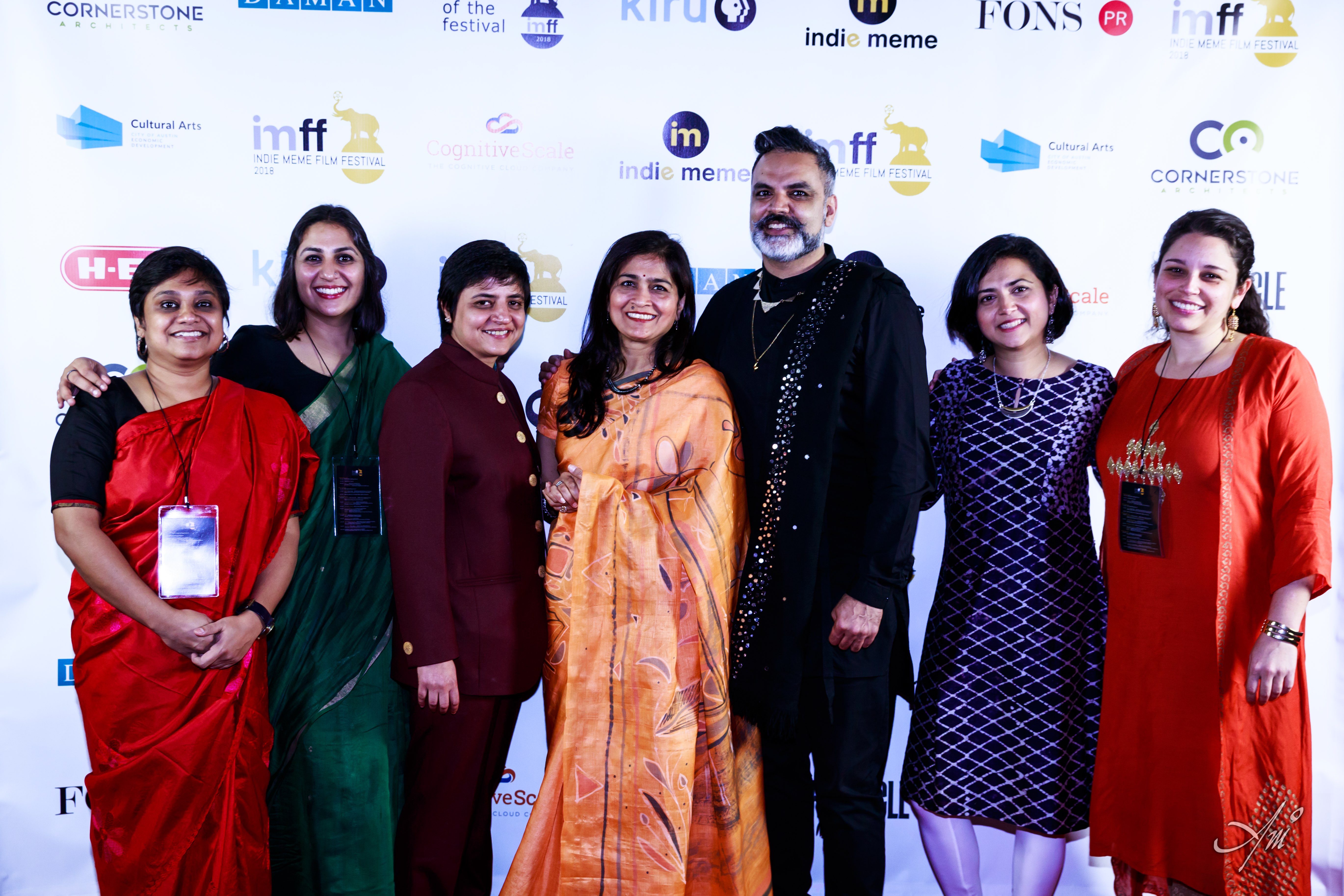The Third Annual Indie Meme Film Festival had its opening weekend April 19 – 20 with their red carpet event taking place on the 20th. The festival showcased culturally diverse and socially relevant independent films from South Asian Countries, including India, Pakistan, Nepal, Sri Lanka and more.
I had the opportunity to attend the red carpet event and speak not only to the creators of the festival, but also many of the filmmakers of the 10 films that were showcased throughout the four-day event. It was a great experience to see how many people attended and were truly excited to see what the festival had to offer.
Talking to the filmmakers was an enjoyable experience, learning what it was that made them create their specific film and what they wanted people to take away from it showed how much thought and work was put behind every film.
Important and relevant issues were touched on by each of the films mentioned, and it was incredibly inspiring to see the filmmakers bring those issues into the light where they might hopefully cause some discussion and change in the world. Here are some of what the filmmakers and founders had to say over their films and the festival.
First up was director Sangeeta Agrawal with her film “Five O’Clock Shadow,” a story about an Indian-American mother who is the victim of racial abuse. When asked about her film and what inspired it, she says “I had been looking to make a short film for a while and it came to me after the shooting of two South Asian men. It’s a story about a mother and her son.
“What I hope is that people find it relatable, that it’s an issue they feel they have experienced, and hopefully it will become the spark for discussion about the subject of racial [abuse],” says Agrawal. “The goal of the film is to bring the issue of racial abuse to light; I want people to discuss it.”

Next was director Shilpi Gulati with her film “Lock and Key,” a story about four recovering addicts at a rehabilitation center in Punjab, India who are helping other addicts recover from the rampant drug problem in the state.
When asked to elaborate on her film and what it can do for people, she says “In our society, when we look at addiction and addicts, we tend to categorize them as evil outcasts, horrible people who have done many violent and abusive things to their families. I hope my film can provide a new prospective of looking at these people.
“At the same time, I hope this film makes the audiences understand that addiction is actually a problem that one person goes through but that it also affects the entire family or social circle of that person,” says Gulati. “So in that way maybe more hopeful conversations would look at a collaborative effort of the family and the society in the rehabilitation process of the recovering addict.”
Director Vaishali Sinha came up next with her film “Ask the Sexpert,” a feature length documentary about a 90-year-old sex advice columnist for a daily newspaper in Mumbai, whose column gained a lot of popularity despite the ban on comprehensive sex education in schools in approximately one third of India’s states.
With a film about a topic so taboo in many places — not just India — it was interesting to see someone take on a project like this. Director Sinha says “The topic of sexuality education is so deep and wide, and there’s a lot to talk about, so I really hope the film acts as a great jumping-off point — a starting point for discussion — to break down the taboo of it.
“I want people to deeply consider being open about the body and relationships with your children, partners, parents and a small step towards being more educated and open.”
Next up was director Arshad Khan with his film “ABU (Father),” which is a film about the journey of a fragmented family while they grapple with religion, sexuality, colonialism and migration.
Director Khan uses his experiences as a gay Pakistani-Muslim by referring to his own journey when it came to his sexuality, identity and parent relations, and he wanted to create a film that could help others with the struggles he had when he was younger.
On Khan’s film, he says “It’s a film about a gay son’s struggle with a very devout Pakistani-Muslim father. We’re living in a really homophobic world, and I can only speak for my community, which is the South Asian community. I’m really hoping that with this film they will get to understand us better within our own culture, but many people relate to this film beyond culture and ethnicity because I am discussing universal issues.
“I made a film for young people and their parents so their parents would get to understand [their children] better,” says Khan “I want them to have it easier than I had, so I’m amplifying their voice with mine.” With such powerful themes that reach out to all generations, “ABU,” won the Audience Choice Award for the festival.
Writer Maheen Mirza and editor Puloma Pal, both part of the Ektara Collective, came to represent the U.S. premiere of their film “Turup (Checkmate).” “Turup” is about a neighborhood where chess is a popular pass time. It is large on metaphor, the pawns of the game including morality and religion, with men as the most visible players.
One of the key players in the movie, is a young woman in love with a former journalist, both of them struggling with married life, being careful with every move they make. Writer Mirza commented on the film “We hope that people will take back some amount of hope, will look at things and want to change them, that they would not want to sit back and watch things which are not right or just, happening and unfolding before them, as seen in the film.”
Last, but not least, was director Tania Romero with her short film “Hakla.” A bolly-latino fusion film about a young man who wants to dance but has a stammering problem and lacks the confidence to do so. He ends up looking up a Bollywood dance class but accidently gets enrolled into a salsa class instead, which causes him to fall in love with the culture.
Director Romero says “This was my attempt to bring a little bit of the fusion of Bollywood with Latino culture and draw some parallels between the two cultures, which I find very similar.” Romero herself is Latina, born in Nicaragua, now based in Austin, Texas, and is hoping to inspire people by presenting them with a fusion of cultures that might surprise people with how similar they seem.
Speaking to these incredible filmmakers was inspiring; they are truly shining a spotlight one issues that are relatable and important. The festival was a great success with all of its guests and it garnered quite the crowd each day of the event. Audiences got the chance to not only watch these incredible films but to discuss with the filmmakers as well.
Hopefully with South Asian films getting more attention with festivals such as Indie Meme Film Festival, the world will become more open to discussing issues and problems like the ones brought to the table by all the filmmakers that attended the red carpet for the film event.

















